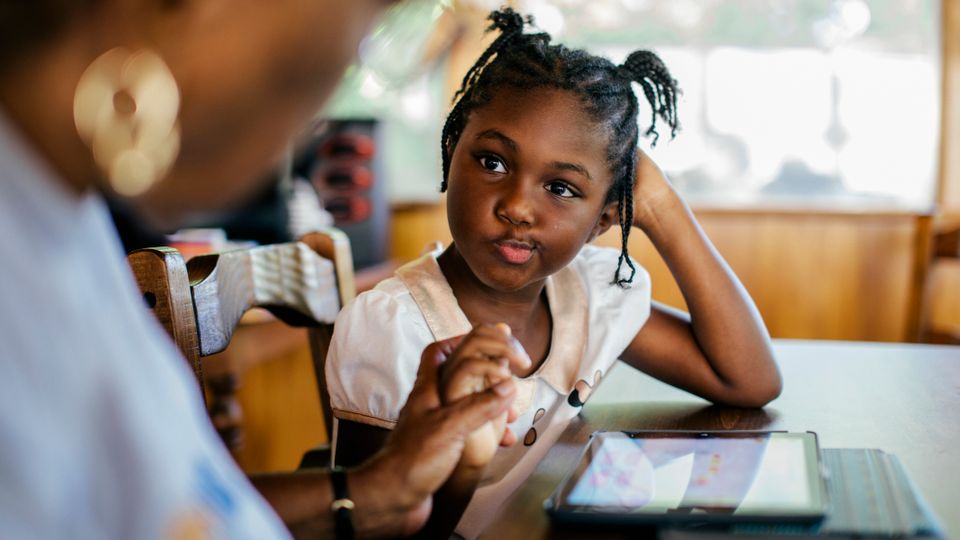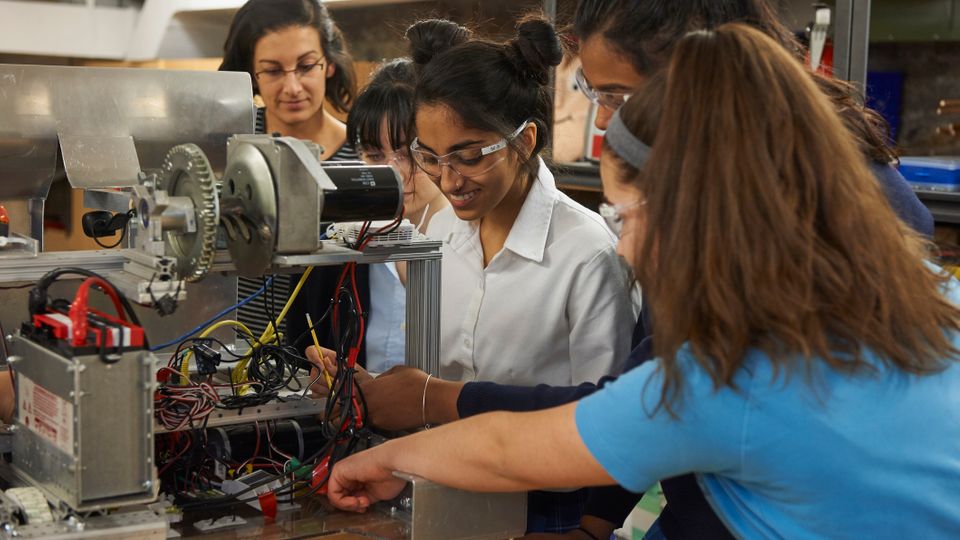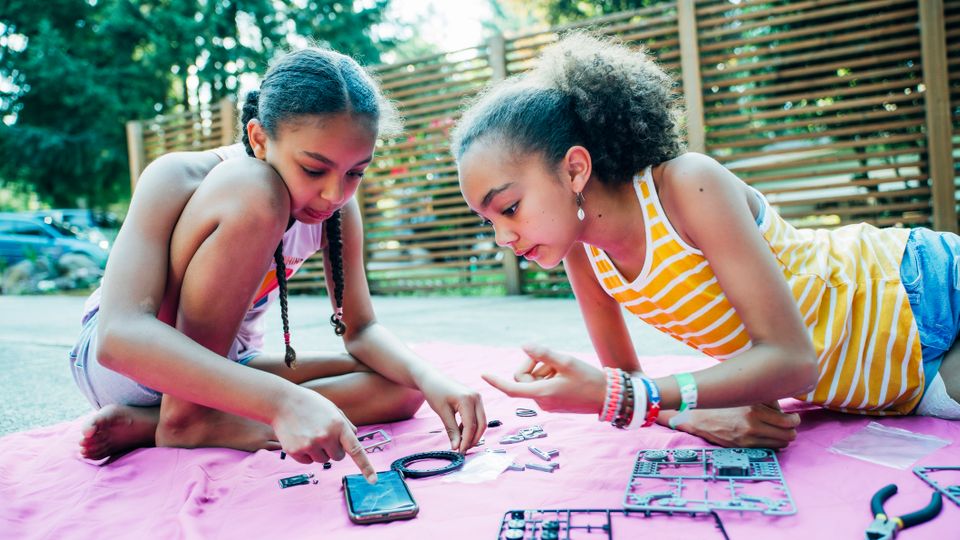Girls4Tech, a Mastercard programme to inspire middle-school girls to pursue careers in the STEM fields. The programme’s successes in reaching young girls in Kenya and Nigeria highlight why reaching five million girls by 2025 is so important.
Algorithms, digital convergence, encryption and big data are all buzzwords of the Fourth Industrial Revolution, but on the African continent, this is a language not extensively spoken by girls. The STEM subjects (science, technology, engineering and mathematics) are not often pursued by girls, and the male domination in this space continues to perpetuate the perception that these subjects are not for women.
In 2019, Mastercard commissioned a study “Catalyzing the next-gen STEMinists” to understand the gender and generational differences in perceptions and attitudes towards the STEM subjects. The study showed that girls are less confident, receive less encouragement and need more mentors in these fields.
The report stated: “Girls need to be exposed to the potential career opportunities in STEM at a young age to better identify with their own interests. Going into STEM doesn’t just mean becoming a scientist in a lab; girls need exposure to the vast possibilities of a career in STEM.”

The STEM subjects are not often pursued by girls as a career (Credit: Willie B. Thomas)
Sparking curiosity
This is where the Mastercard Girls4Tech programme comes in. Launched in 2014, Girls4Tech teaches girls aged seven to 12 to be curious, to develop innovative mindsets and to take a smart approach to solving everyday challenges using technology. Students play the roles of various STEM professionals, including cryptologists, fraud detectives, data scientists and data engineers to solve real-world problems in these fields.
Susan Warner, vice president of community engagement and founder of the Mastercard Girls4Tech programme says, “Our goal is to build foundational STEM knowledge and develop critical 21st century skills girls need for their studies and career success. Our programme sparks their curiosity in STEM and teaches them real-world applications of those skills.”
Nigeria and Kenya were selected as the first two countries in which to launch Girls4Tech in Africa in 2017, and its achievements in these two nations have contributed to the programme’s global success.
Girls4Tech was originally intended to reach 200 000 girls by 2020, but surpassed that five-fold, reaching one million girls in 31 countries in that timeframe. The programme has now been set a new goal of reaching five million girls by 2025.
Kenya’s next-gen women leaders
Girls4Tech has gone from strength to strength in Nigeria and Kenya, with new events coming on line at pace, continuing through the Covid-19 pandemic. In Kenya, ranked 109th out of 153 countries in the 2020 Global Gender Gap Report, there is a growing demand for workers in the STEM disciplines, meaning that opportunities are opening up for women, who currently represent only a third of students enrolled for study in these fields.
STEM stands for science, technology, engineering and mathematics and refers to any subjects that are included under these areas. (Credit: LWA/Dann Tardif)
The first of the 2020 programmes launched in Kenya was rolled out in recognition of International Women’s Day in May to 68 girls aged between nine and 12 at the Loreto Convent Msongari in Nairobi.
At the time of the launch, Ifeoma Dozie, director, marketing and communications, Sub-Saharan Africa at Mastercard said, “Through our Girls4Tech programme, we’re extending our commitment to the next generation of women leaders and developing a strong pipeline of talent for Kenya’s future economy, by encouraging girls to embrace subjects that will prepare them for the workforce of tomorrow… Women are the driving force behind Africa’s economic growth, and their contributions will continue to elevate communities and society as a whole.”
A new programme for a new world
In the course of 2020, driven by the Covid-19 pandemic, the programme was reimagined as a digital learning experience. It now offers enhanced access to its STEM curriculum through Girls4Tech Connect, which is currently available in eight languages. This was developed in partnership with Discovery Education, a global designer of standards-aligned digital curriculum resources, with the intention of reaching 1.6 million girls by 2023 on this platform.

Due to the COVID-19 pandemic the programme has gone online with practice at home (Credit: Inti St. Clair)
In March 2021, the first Girls4Tech Connect programme in partnership with Junior Achievers Nigeria (JA Nigeria) was rolled out in Nigeria. Nigeria is 128th on the Global Gender Gap Report, and women on average earn 25 to 40% less than men in the same jobs, and make up only about 22% of the engineering and technology university graduates each year.
At the time of the launch of Girls4Tech Connect in Nigeria, Dozie said, “We’re incredibly proud of the strides that we are making with Girls4Tech Connect, in sub-Saharan Africa. The success of the programme in Nigeria last year indicates that there is a strong need for this kind of intervention, where our future female leaders are given the opportunity to be exposed to new STEM career possibilities.”
It is clear that programmes like Girls4Tech support the achievement of these goals on a global scale, and contribute to developing the “STEMinists” of tomorrow.
Source : https://www.bbc.com/storyworks/mastercard-ssa/inspiring-future-ready-steminists-in-africa-?utm_source=promo-news-homepage&utm_medium=10×10&utm_campaign=Connections+to+the+digital+economy&utm_id=AS-026404&utm_content=Mastercard_Girs4Tech

